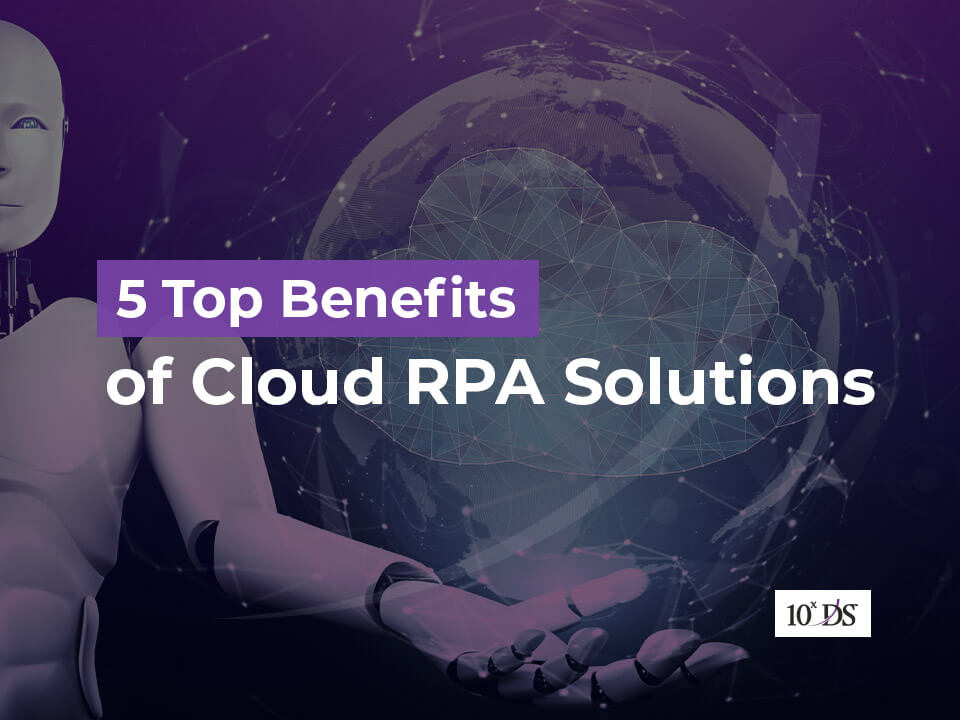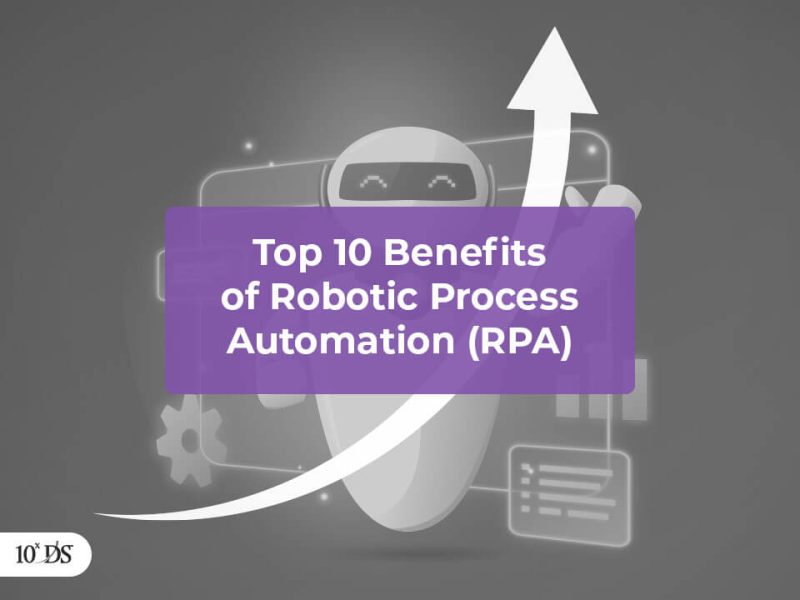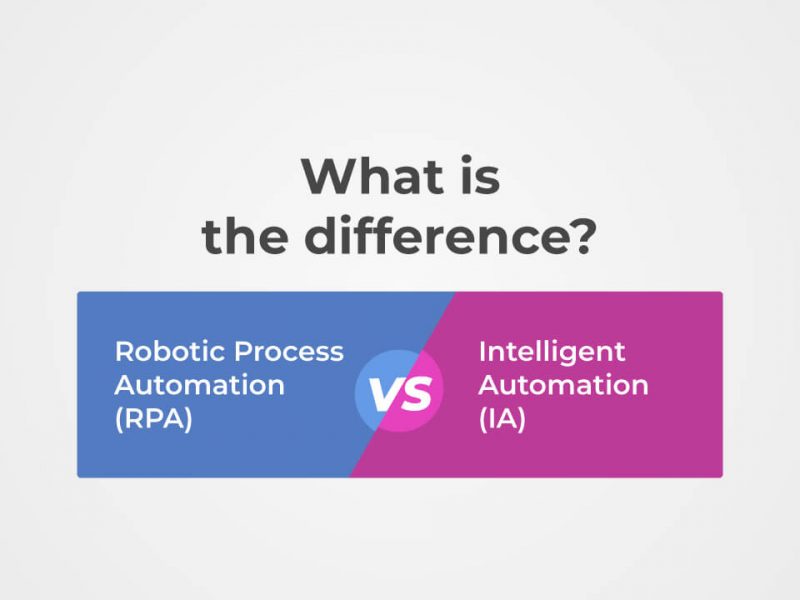
5 Top Benefits of Cloud RPA solutions
Robotic Process Automation (RPA) and Cloud computing are two technological advancements that have gained immense popularity in recent times. RPA makes it possible for businesses to automate repetitive processes by using software tools in an error-free and optimized way. On the other hand, cloud computing provides location-independent computing services to businesses with the help of databases, remote servers, and more.
Robotic Process Automation and cloud computing are both incredible independent technologies. However, both these technologies will transform into a supreme technological solution when they are combined. The combination of these two innovative technologies enables different types of businesses to streamline their processes with ease.
A Beginner’s Guide to Cloud RPA
Cloud RPA offers all agile features of Robotic Process Automation via the capabilities of the cloud. Most RPA applications were traditionally deployed as on-premise software or tools for businesses.
The introduction of cloud foundation RPA has allowed businesses to consider on-premise tools as they are. Businesses will now be able to migrate the entire infrastructure of their enterprise to the cloud without any hassles.
In addition, cloud-based RPA makes it possible for businesses to remain tech-savvy and agile. The advanced technology enables businesses to scale at a rapid pace. RPA cloud-native architecture is also capable of improving the pace at which businesses deploy, build, and manage different applications.
Benefits Businesses Can Enjoy Through Cloud RPA
Cloud RPA offers a wide range of key benefits to businesses and some of the most common ones are discussed below.
1. Low Infrastructure Costs
One of the noticeable benefits of Cloud RPA is undoubtedly the massive price or cost reductions. The technology infrastructure, which is needed for installing and maintaining the cloud is considerably low when compared to other on-premise enterprise tools or solutions. An estimate from McKinsey & Company revealed that businesses will be able to save up to 25 percent by combining RPA and cloud computing.
The requirement of IT support is zero or minimal when integrating cloud computing and RPA. This will in turn result in massive cost reductions when it comes to technical infrastructure upfront cost. The TCO or total cost of ownership will also be relatively less.
2. Ease Of Implement
Another impressive benefit of Cloud RPA is the quick deployment of the technology and the ease of installation. Several businesses are a bit hesitant when it comes to adopting automation through their enterprise. Cloud RPA does an impressive job of removing the barriers to adopting automation by managing and hosting everything on the cloud. As a result, the installation of optimized and pre-build cloud services will be extremely fast and easy.
3. Ease Of Use
Another highlighting aspect of cloud RPA is that it is incredibly easy to use. In most cases, you will not have to give any kind of special training to use it. All you need to do is simply select a business task or process that has to be automated. Businesses that already have a robust RPA will be easily able to migrate to the cloud.
Cloud RPA features an intuitive interface, which is optimized across different business functions and verticals to help users. Features like drag-and-drop AI features, specific design views for separate departments, and built-in product learning ensure an interactive experience for users.
4. Remote Accessibility
One of the major advantages of integrating RPA with cloud computing is remote accessibility, as you will not have to download and install software systems on local devices. Email is an excellent example of cloud computing.
Just like you will be able to access an email from any device and anywhere, you will be able to gain access to business automation workflows. Since there is no barrier of location, team collaboration will surely become seamless and effective, which is good for all businesses.
5. Scalability
Cloud RPA is a very scalable business application, but it allows businesses to start by automating a few tasks in the beginning. That said, businesses will be able to gradually scale up as their automation requirements evolve.
Most cloud RPA tools are regularly updated. In fact, they get updated once every month or four weeks. This means that businesses will have access to the latest software system with automatic and regular updates, which offers them the bandwidth for deploying new products and working on innovative solutions at an unprecedented pace.
Conclusion
The power of RPA when combined with the capabilities of cloud computing has the potential to considerably alter the business processes of organizations. In short, businesses that embrace cloud RPA technology will be able to adapt and grow at a faster pace.
Talk to our experts to learn more about Cloud RPA and kickstart your automation journey to stay competitive in the industry.


